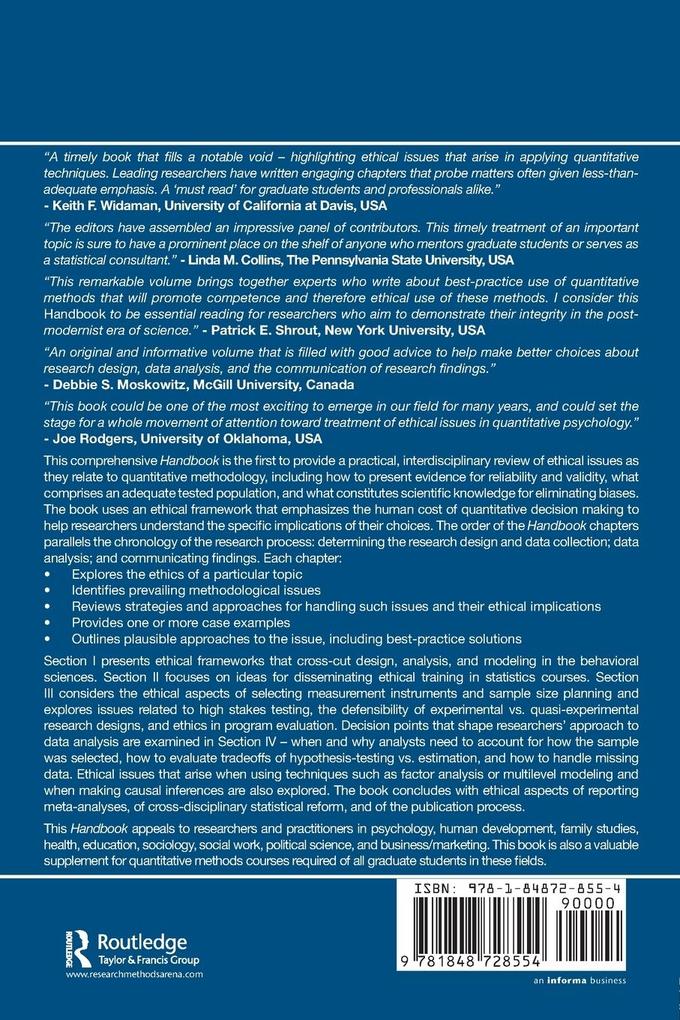
Zustellung: Di, 27.05. - Mo, 02.06.
Versand in 2 Wochen
VersandkostenfreiBestellen & in Filiale abholen:
This comprehensive Handbook is the first to provide a practical, interdisciplinary review of ethical issues as they relate to quantitative methodology including how to present evidence for reliability and validity, what comprises an adequate tested population, and what constitutes scientific knowledge for eliminating biases. The book uses an ethical framework that emphasizes the human cost of quantitative decision making to help researchers understand the specific implications of their choices.
Inhaltsverzeichnis
Ethics in Quantitative Methodology: An Introduction. Part 1: Developing an Ethical Framework for Methodologists. Ethics in Quantitative Professional Practice. Ethical Principles in Data Analysis: An Overview. Part 2: Teaching Quantitative Ethics. A Statistical Guide for the Ethically Perplexed. Part 3: Ethics and Research Design Issues. Measurement Choices: Reliability, Validity, and Generalizability. Ethics and Sample Size Planning. Ethics and the Conduct of Randomized Experiments and Quasi-Experiments in Field Settings. Psychometric Methods and High-Stakes Assessment: Contexts and Methods for Ethical Testing Practice. Ethics in Program Evaluation. Part 4: Ethics and Data Analysis Issues. Beyond Treating Complex Sampling Designs as Simple Random Samples: Data Analysis and Reporting. From Hypothesis Testing to Parameter Estimation: An Example of Evidence-Based Practice in Statistics. Some Ethical Issues in Factor Analysis. Ethical Aspects of Multilevel Modeling. The Impact of Missing Data on the Ethical Quality of a Research Study. The Science and Ethics of Causal Modeling. Part 5: Ethics and Communicating Findings. Ethical Issues in the Conduct and Reporting of Meta-Analysis. Ethics and Statistical Reform: Lessons from Medicine. Ethical Issues in Professional Research, Writing, and Publishing.
Mehr aus dieser Reihe
Produktdetails
Erscheinungsdatum
14. Januar 2011
Sprache
englisch
Seitenanzahl
540
Reihe
Multivariate Applications Series
Herausgegeben von
A T Panter
Verlag/Hersteller
Produktart
kartoniert
Gewicht
726 g
Größe (L/B/H)
229/155/30 mm
ISBN
9781848728554
Entdecken Sie mehr
Bewertungen
0 Bewertungen
Es wurden noch keine Bewertungen abgegeben. Schreiben Sie die erste Bewertung zu "Handbook of Ethics in Quantitative Methodology" und helfen Sie damit anderen bei der Kaufentscheidung.



















